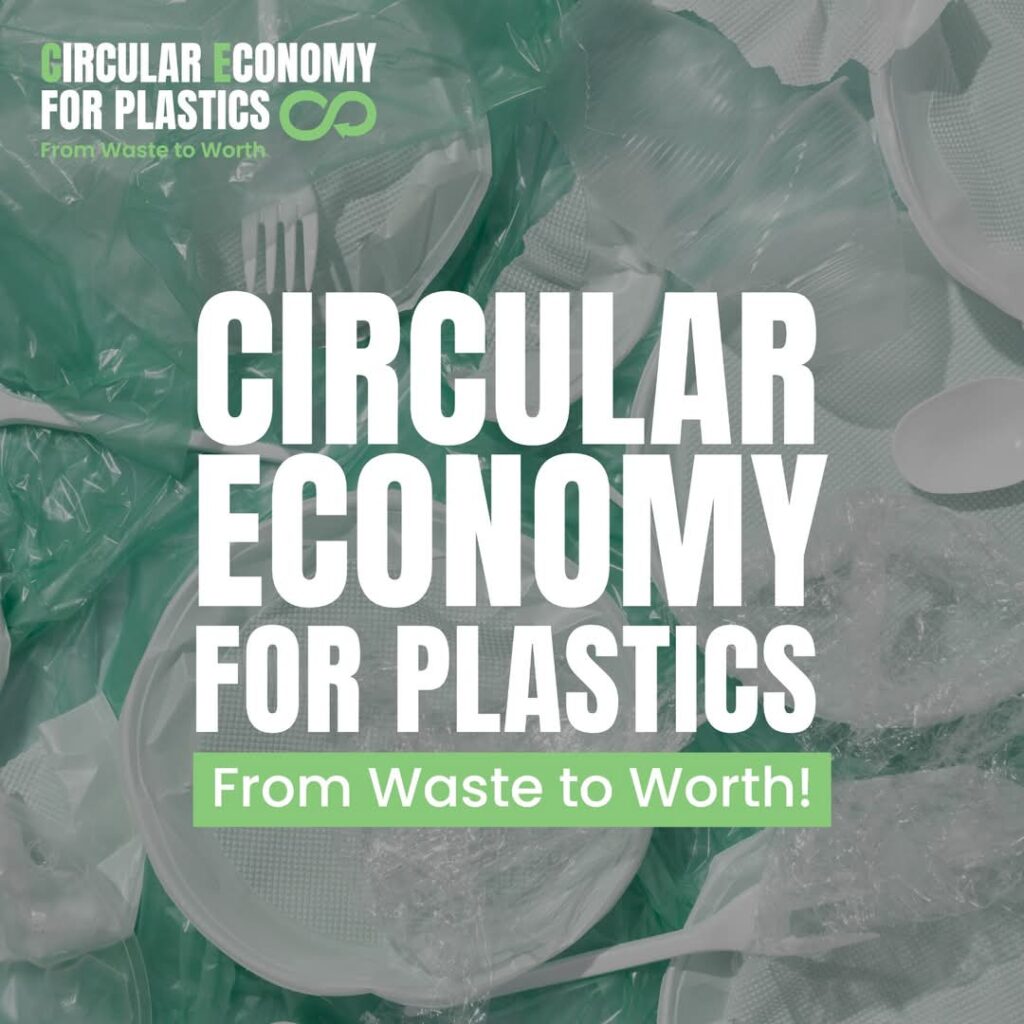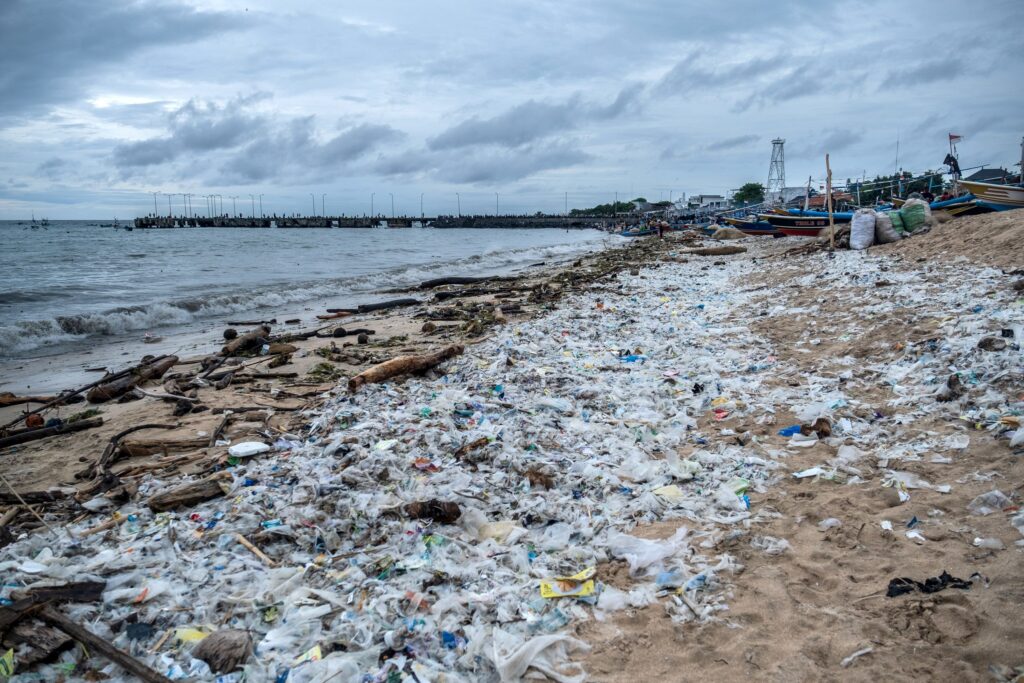Food & Climate
The organizers of the project “Circular Economy for Plastics: From Waste to Worth” in Egypt, which targets transformation from Single-Use Plastic to multi-use plastic, are changing the slogan and main messages targeted for the awareness campaign, after the decision to postpone its launch, which was supposed to be in February. “Food & Climate” platform interviewed tow officials from the United Nations Industrial Development Organization (UNIDO), which supports the project, to explain the reasons behind.
Patrick Jean Gilabert, UNIDO Representative- Regional Hub office in Egypt, said: “We support this project because the ministry of environment asked that. Indeed, in worldwide there is trend to ban single-use plastic and exchange it with plastic that is used multiple times. So, Egypt is in trend to eliminate single-use plastic”.
After a meeting between representatives of UNIDO and the Ministries of Environment and Industry and all parties associated with members of the Federation of Egyptian Industries, it was decided to modify the slogan, date and messages of the supposed the awareness campaign.
The meeting revealed significant concerns among manufacturers that the campaign would harm their industrial activity. A large number of them suggested amending the campaign’s slogan to “Collect It” instead of “Exchange It.”
Eman Abd El Mohsen Shaaban, the national project coordinator who attended the meeting with the Federation of Egyptian Industries on behalf of UNIDO, said that manufacturers’ concerns stemmed from the lack of clarity in the campaign’s objectives and content. They assumed it aimed to eliminate the plastics industry. “But we are not aiming to eliminate plastic.”
The project aims to produce alternatives
She added that the project aims to produce alternatives to this type of single-use, also from plastic, but with new, more sustainable products and designs.
“We can’t eliminate the plastic because a lot of products they don’t have already alternatives, so, some products have to be single-use, but these will be produced from other materials that can biodegrade which are be degradable into environment which turn into fertilizers or microplastic or whatever or they can be collected in a very organized way between the plants and the end users to recycling products, she said.
Although the project targets all parts of the value chain in the plastics industry and addresses the gaps in it, the main goal is to work on alternatives, so those in charge are coordinating with the Egyptian Standards and Quality Organization in this regard.
UNIDO highlighted the project during the meeting with the Federation of Industries, “and of course the concerns and interests of plastic producers will be taken into consideration, because without cooperation with them, this project may not succeed…We would like to emphasize that”, according to Shaaban.

Therefore, UNIDO postponed the awareness campaign for the project to cancel single-use plastic in Egypt to multi-use plastic, which was supposed to be launched last February, to April or May.
Shaaban said: “We are currently amending the name of the campaign and the key messages that are intended to be delivered to the target audience.”
She added, “We will not focus solely on alternatives or replacing plastic products. Rather, the primary focus will be on the mistake of overconsumption of single-use plastic products and the consequences of dumping this waste in the streets. We will mention alternatives, but that will not be the main message.”
Middle East is different
Although the concerns of manufacturers and producers in Egypt regarding the project to eliminate single-use plastics are not significantly different from those of other countries around the world, and the experiences of many countries reveal similar reactions to such a change, even among the most advanced nations, Shaaban believes the situation is indeed different in the Middle East.
She explained, “The issue is completely different in our countries compared to other countries, especially the European Union, which does not produce petrochemicals. However, our region has huge investments in the petrochemical industry, and we produce the raw materials for plastic production. In Egypt alone, there are approximately 11,000 factories and 6-7 companies, according to data from the Federation of Industries.”
She added, “Our factories export their products and import products and raw materials. It is a strong industry and investment, and it generates jobs and profits from all stages of production, from raw materials to intermediate products and all the way to the final product.”
She continued, “Plastic is used in many industries, such as engineering and household appliances, but the main concern worldwide is single-use plastic, as it is difficult to collect and easily disposed of in the environment.”
She pointed out that many countries support plastic recycling, a very important measure because it provides raw materials. “The petrochemical industry will not exist forever”, she said.
It’s worth noting that the petrochemical industry relies on oil, and studies indicate that oil resources will be depleted in the coming years.
Single-use plastic size
Several studies have been conducted to determine the percentage of single-use plastics in the total plastic in the country, according to Shaaban, who noted that the available figures are for the formal sector only.
She explained, “It is undeniable that the informal sector includes a huge number of plastic factories, and most recycling factories belong to the informal sector.”
Eliminating single-use plastic in Egypt and replacing it with reusable plastics will come at a cost to the end consumer, as they will have to pay for the bags they currently receive for free when purchasing goods and merchandise.

Egypt is an economically fragile country with a high poverty rate, meaning this project will face resistance due to the additional cost. However, Shaaban emphasized that the project is fully aware of this situation.
“We have many ideas and have recommended several possible short-term measures that can provide incentives for consumers to make the switch,” she said.
In response to a question from “Food & Climate” platform about whether it would be better to focus on switching from single-use plastic in Egypt to reusable plastics or plastics that decompose and turn into compost in the soil when released into the environment, Shaaban said, “Reusable plastics are better and fit with Egyptian culture.”
She explained that reusable plastic technologies are easy to manufacture and can be easily trained with minimal modifications to machines. While there is still much unknown about compostable plastic, “we don’t know when it decomposes and what harm it poses to humanity during that time, for example.”

